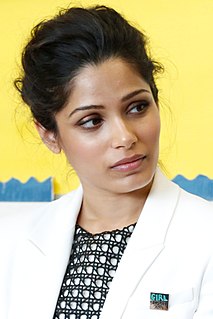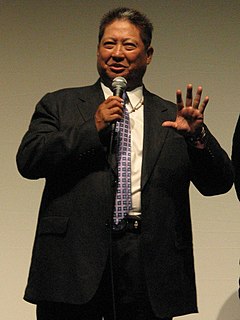A Quote by Freida Pinto
I find it very interesting these days that films are bringing in so many people of different ethnicities, and I'm proud to be a part of that cultural shift.
Related Quotes
Different directors have different techniques in the use of films. Cronenberg is very different in the way he works with film, and how he takes the audience into his films is different than how Peter Jackson would do that or Jon Stewart. So, if you go between those artists, you shift gears and you kind of fall into the working method of that film.
The experimental film scene was very much misogynistic as well. I don't know if you have read what little attention was given to the films of Joyce Wieland, who was the wife of Michael Snow. Michael was the "genius" and she was not. If you look at the films they're wonderful, but very different. Michael was very proud of the films too, so it was not coming from him. It was coming from the general environment. I think both Chantal Akerman and I shared that. We wanted to find a language, which was the language of women.
I watch a lot of different films. A lot of different performances and I find a lot of little things from the films or things that actors do or people in real life who have behaviors or idiosyncrasies that I like or find interesting and I try to remember that. And then I'll do a prayer. I'll do a prayer to ask the character or the spirit of the character to come and visit me. And let's work together.
We've got so many different cultural groups in my family that I've had to learn to accommodate them in different ways. My father speaks different to my mum. My mum speaks different to my grandmother. Everybody speaks different, so you find you start tweaking your language to be more accessible to people.
I think subjectivity plays into everything. It's unavoidable; you couldn't avoid it if you tried. I think, potentially, a lot more commercial movies, it seems to be that the people making the films are trying to elicit the same reaction. I think a lot of the most interesting work in art and in films are often kind of polarized opinions and affect people in very different ways, which may be less successful commercially, but they elicit a dialogue that's quite interesting.
The beauty of when you watch good television or films is that, yes, you may have a multi-cultural cast but those roles could be anybody - they could be white, they could be black. To show the world that we have more in common than we have different with each other is to me the ultimate goal of all of that. It does help unite in people's mind the thought that people are the same. Yes, there's going to be cultural differences, but for the most part, we are all in the same gang as human beings.



































